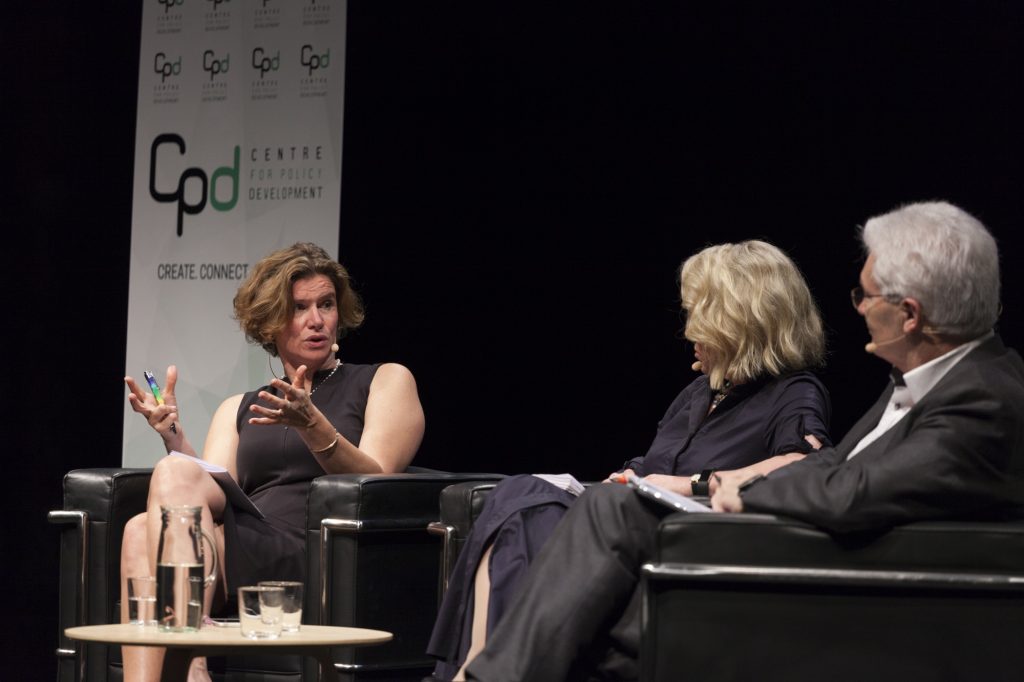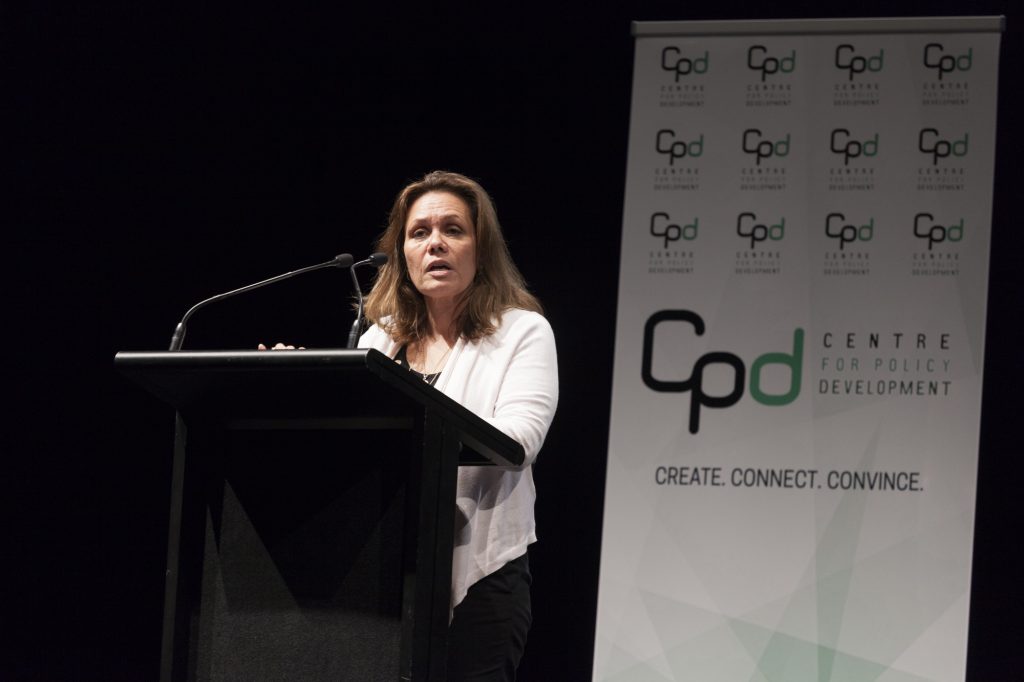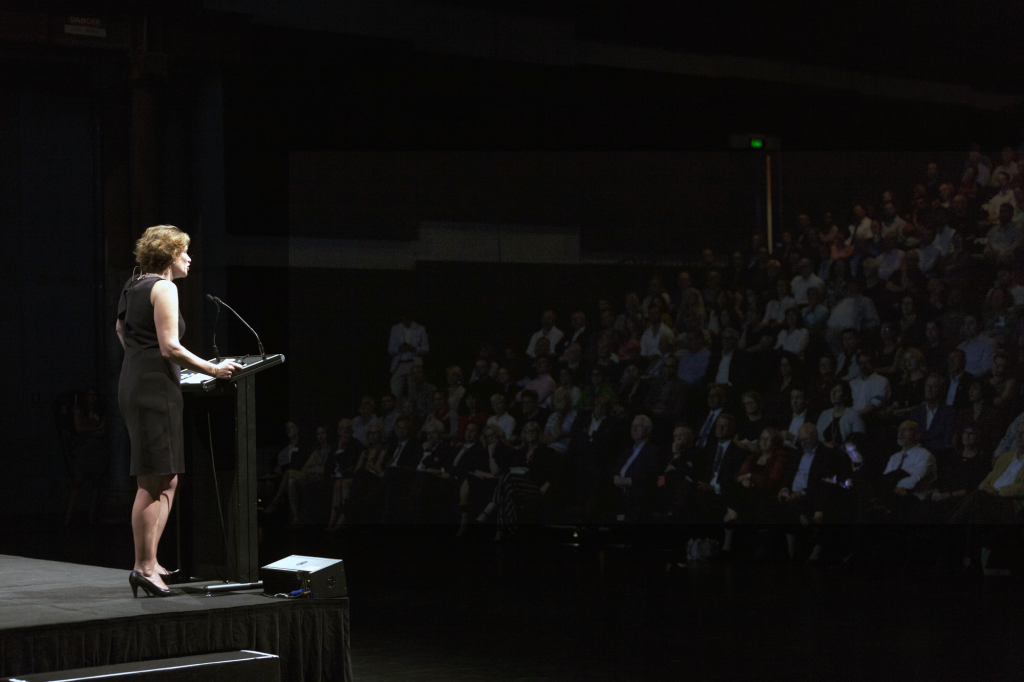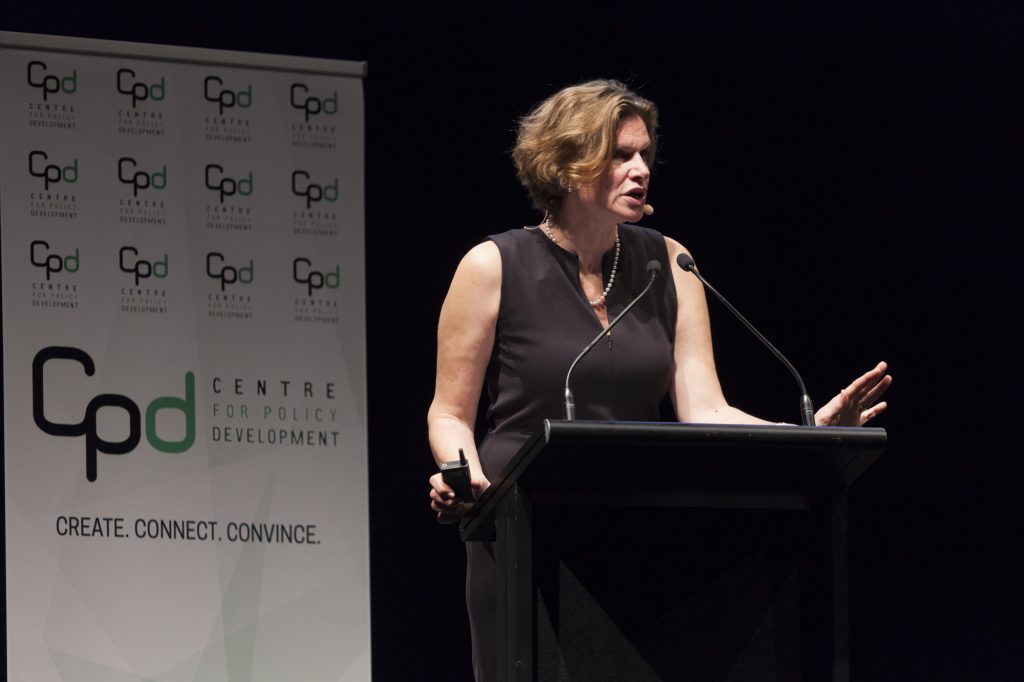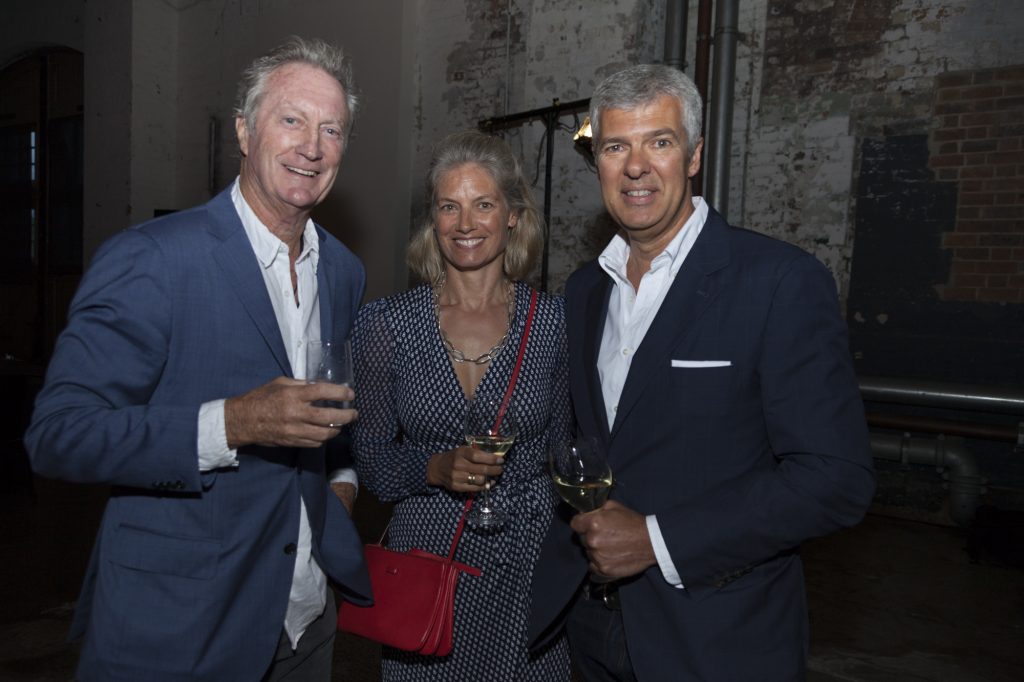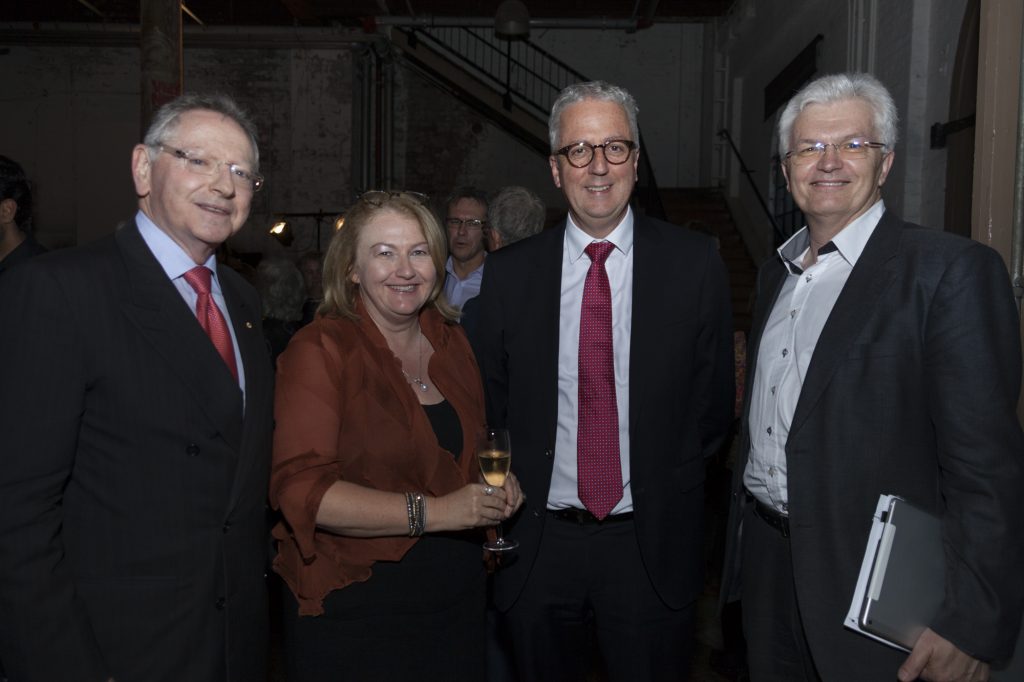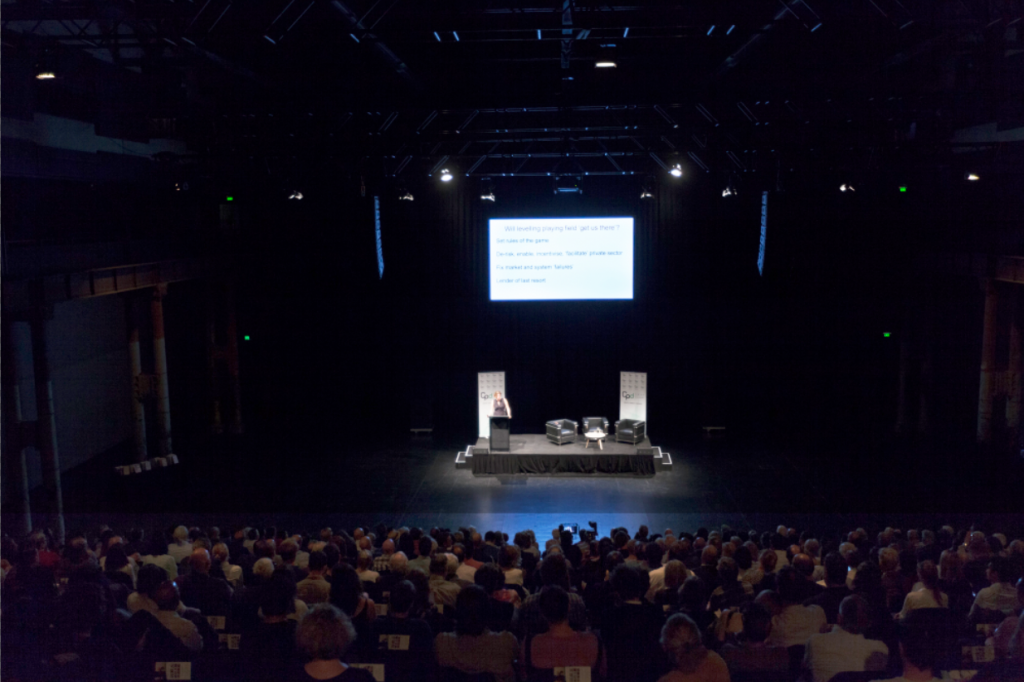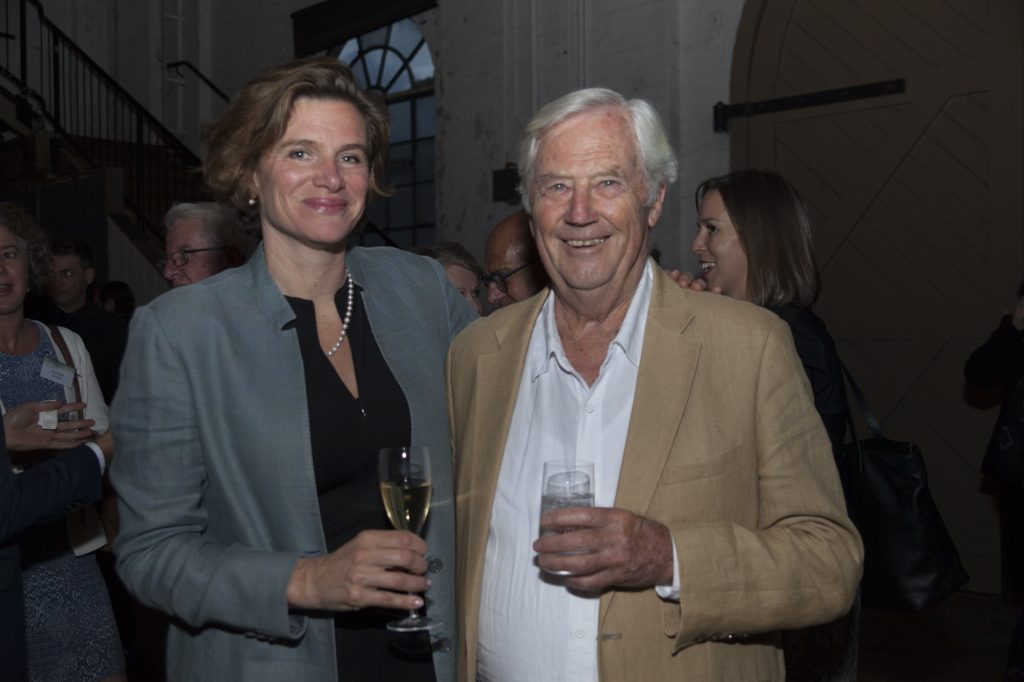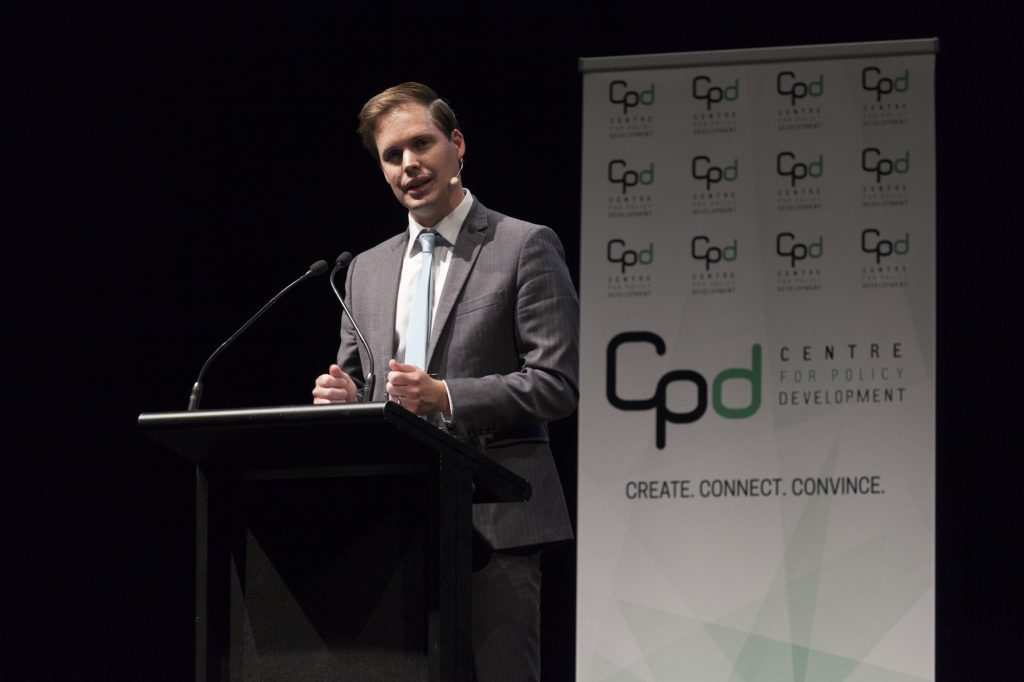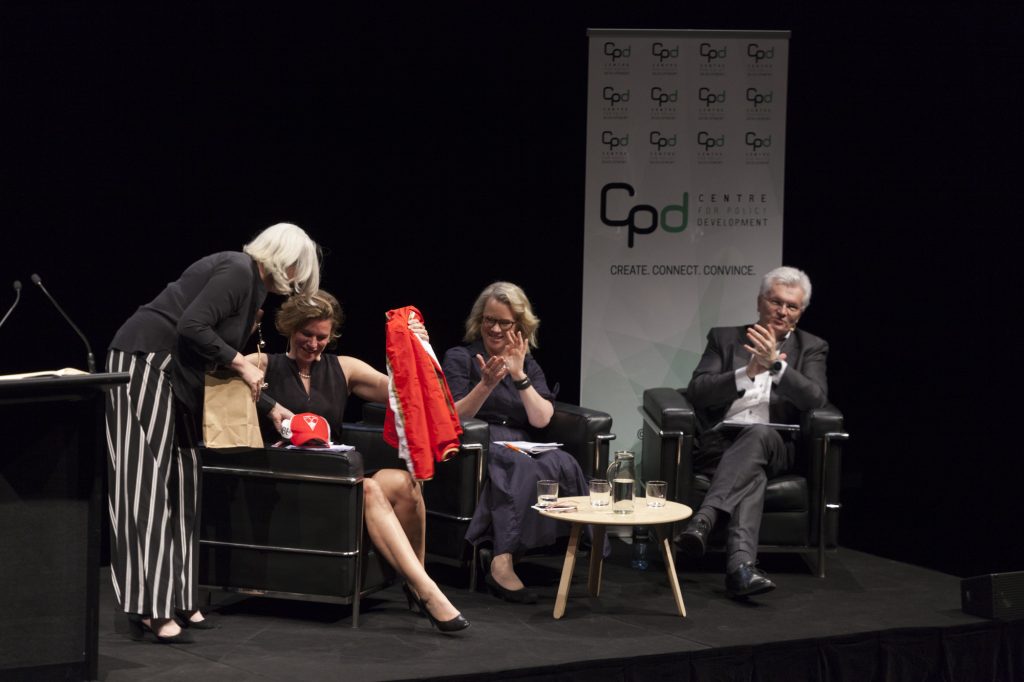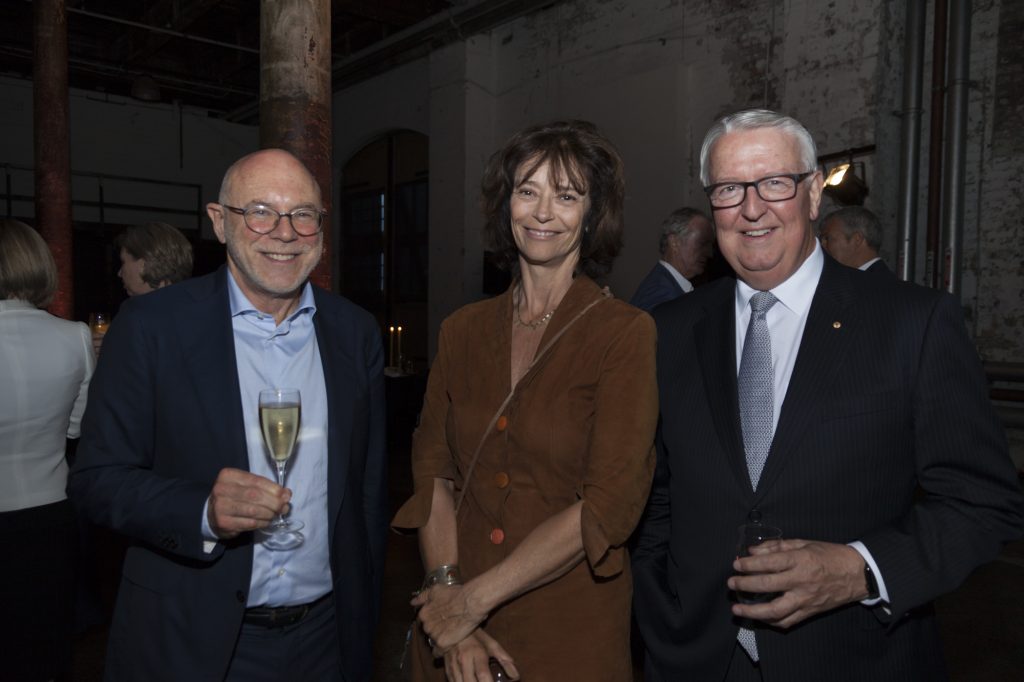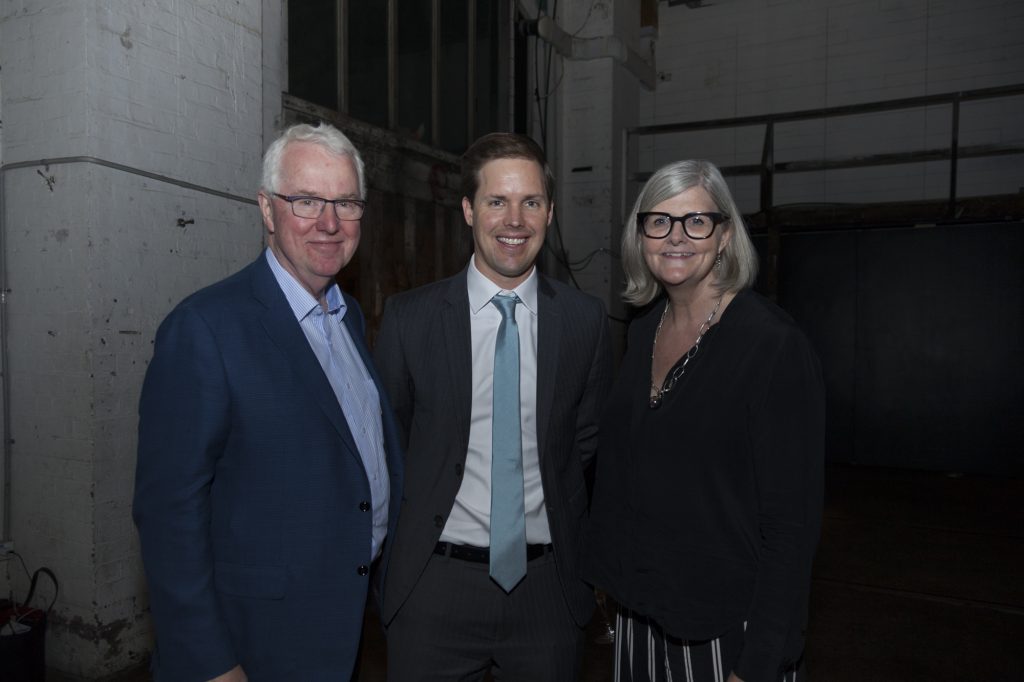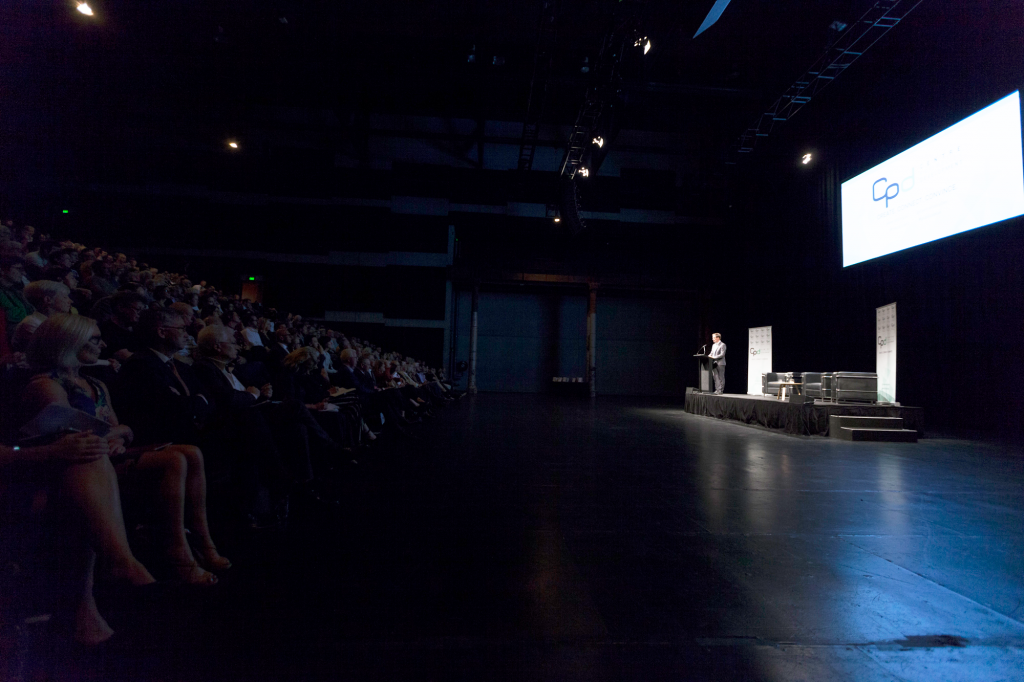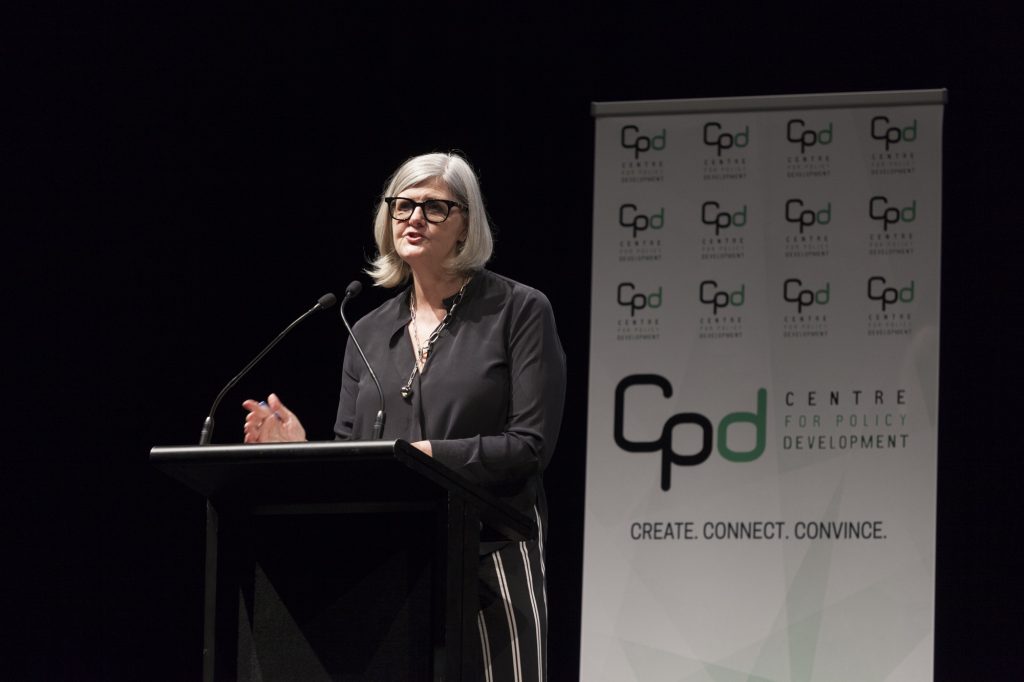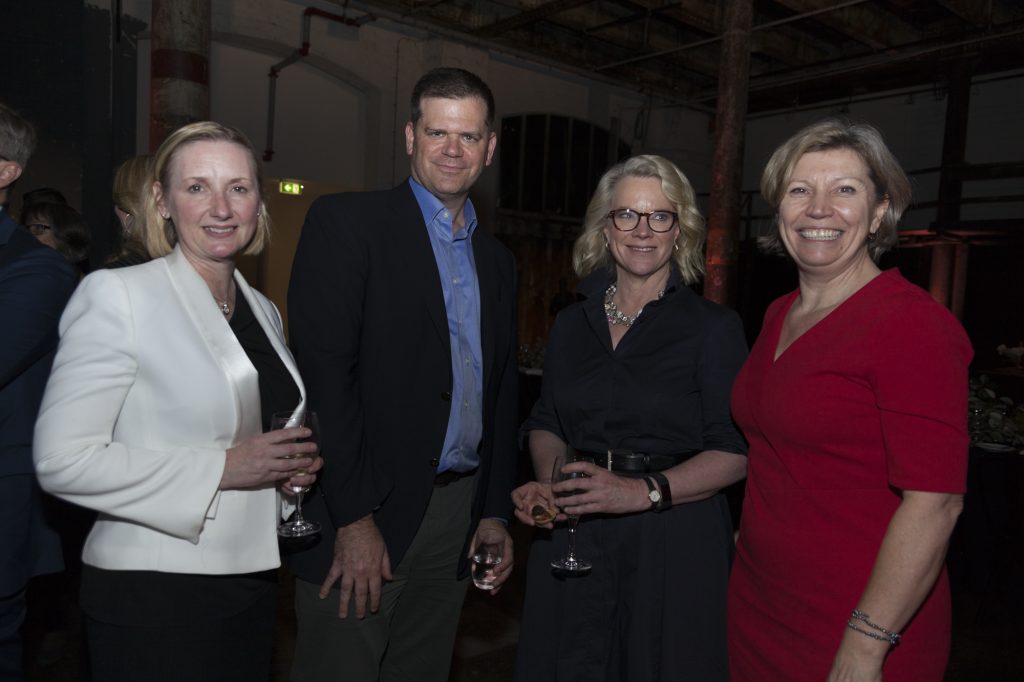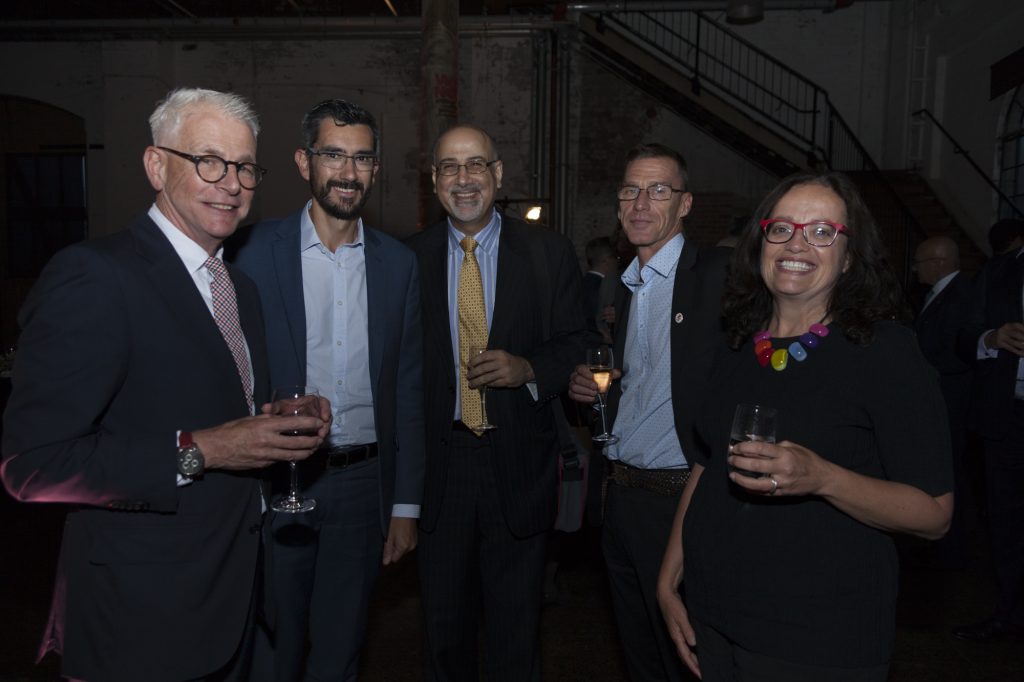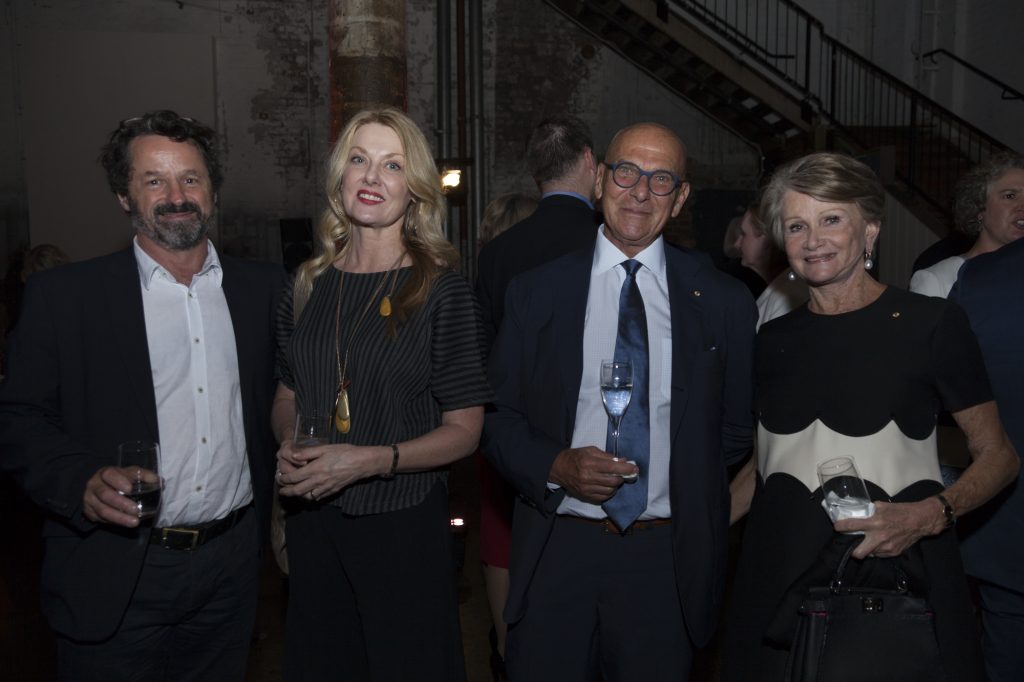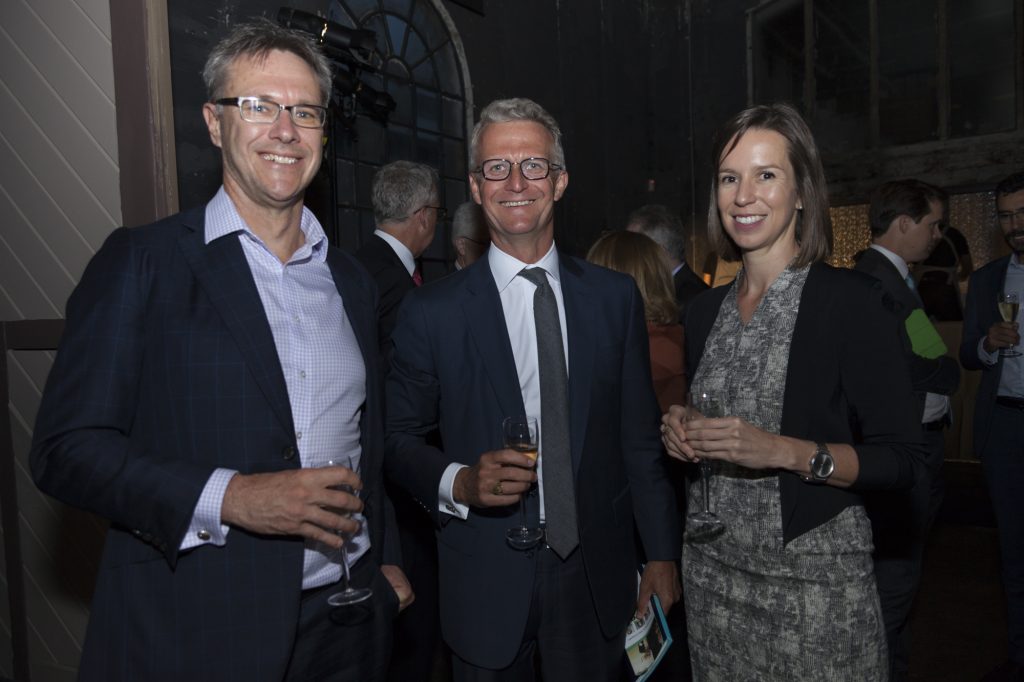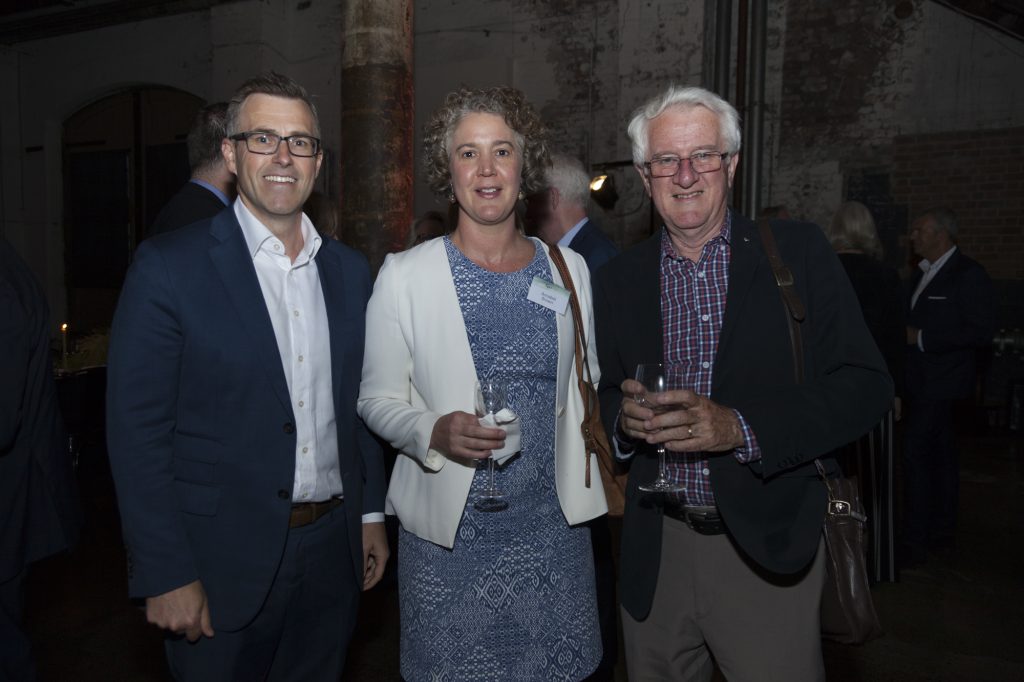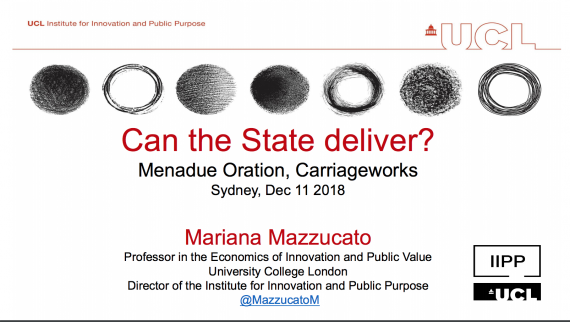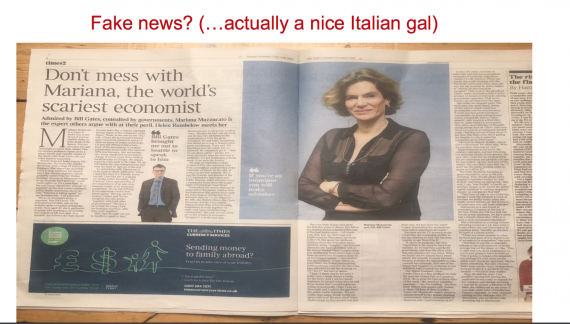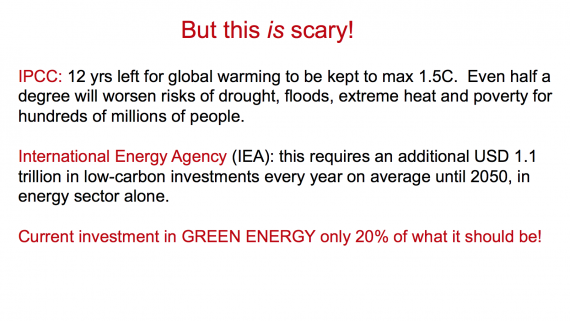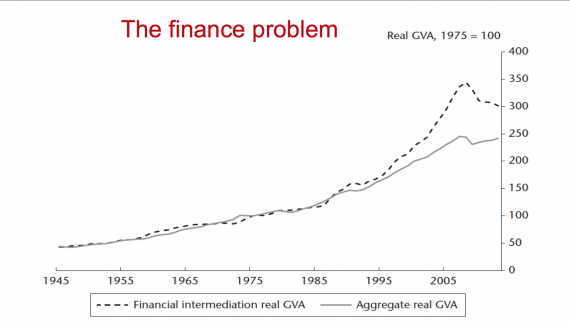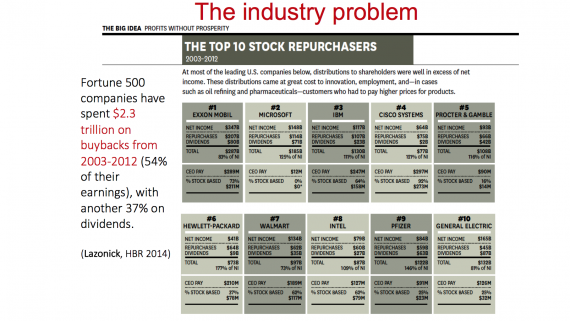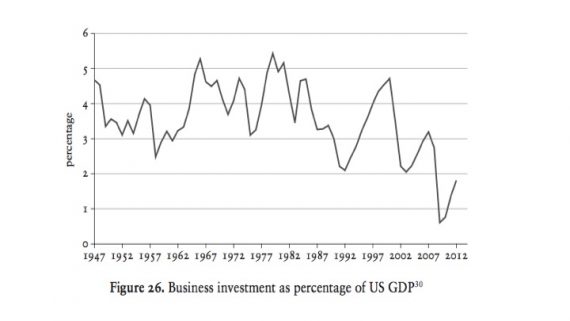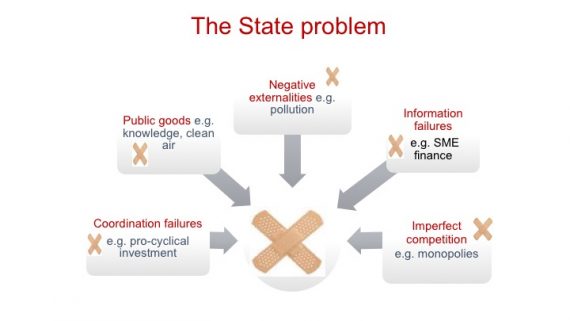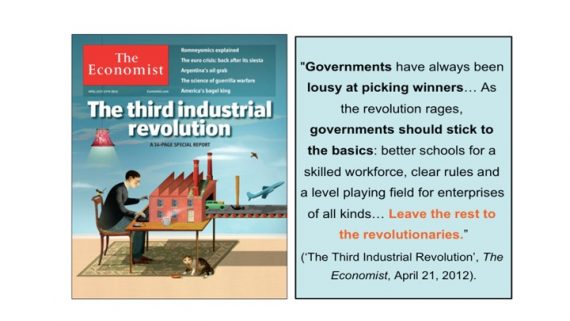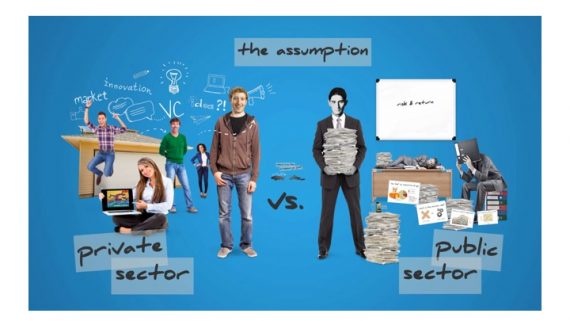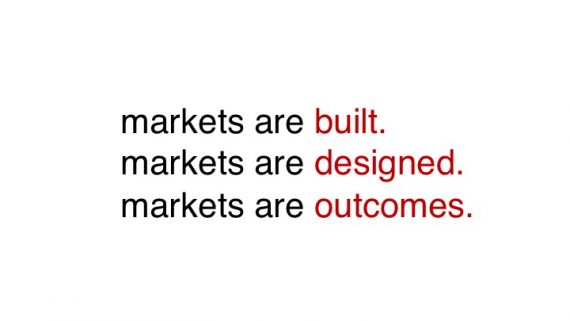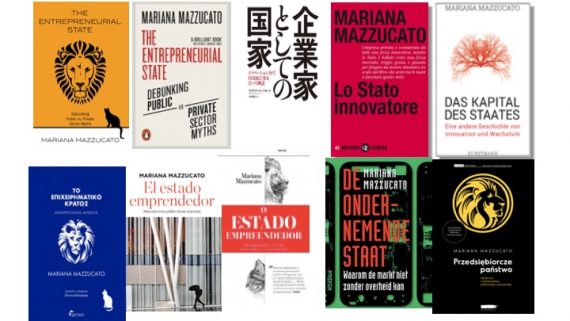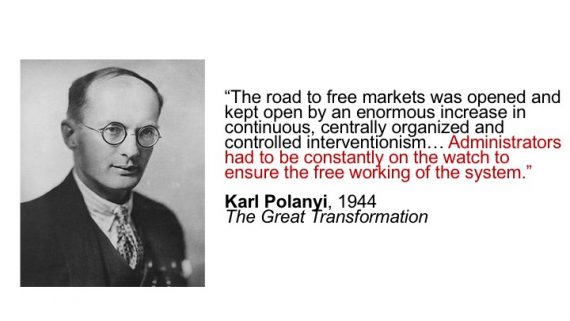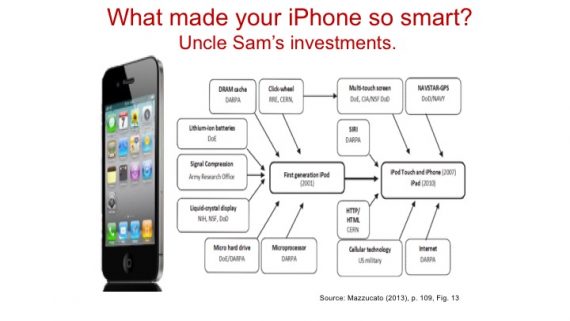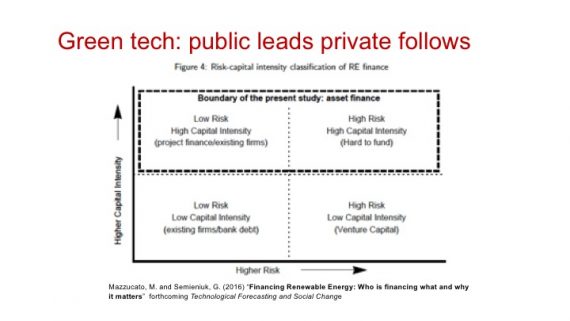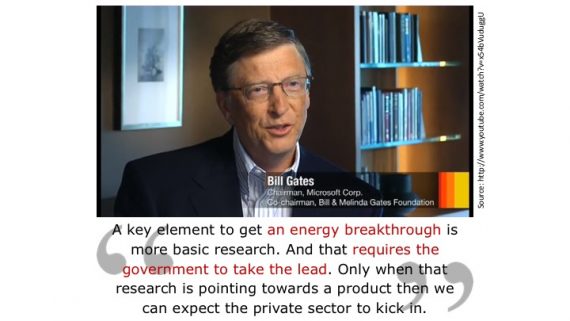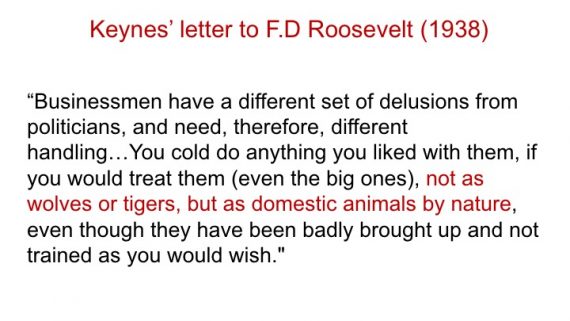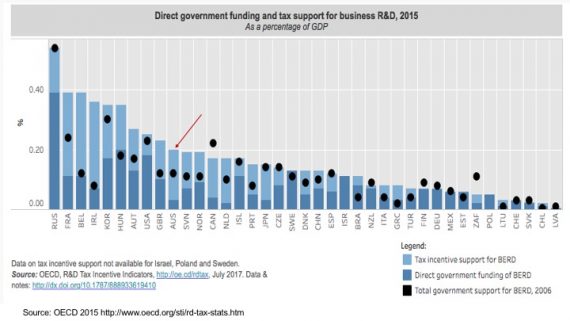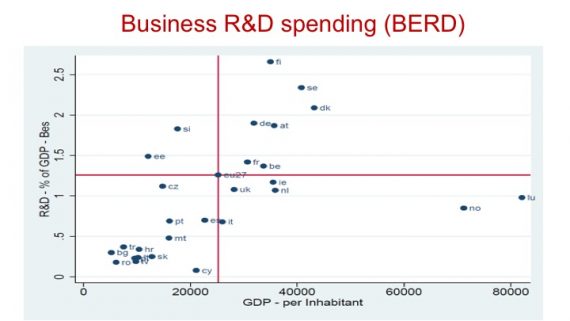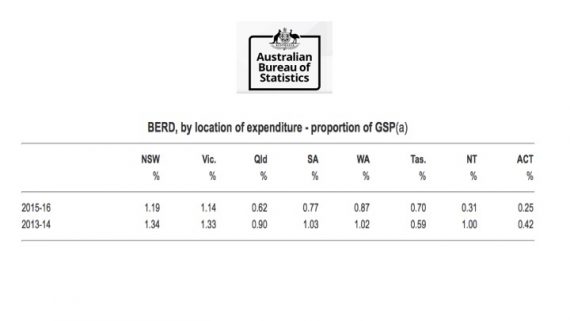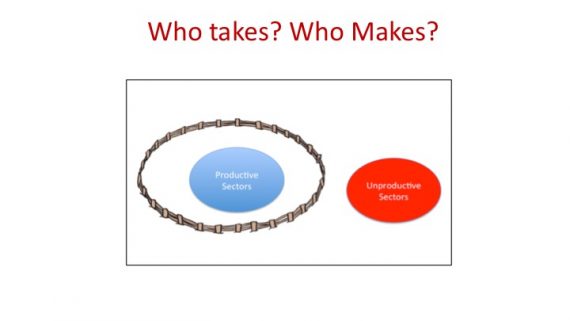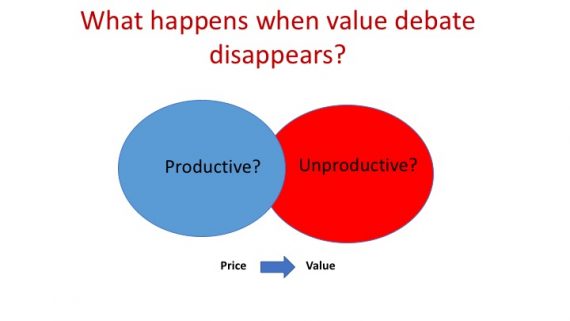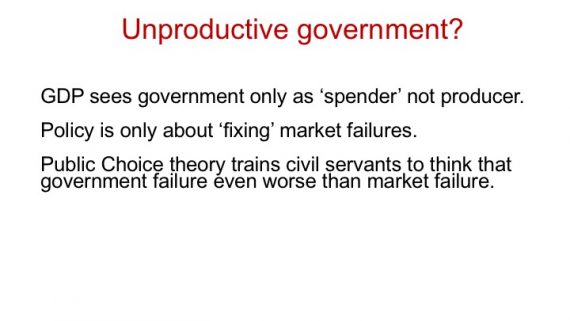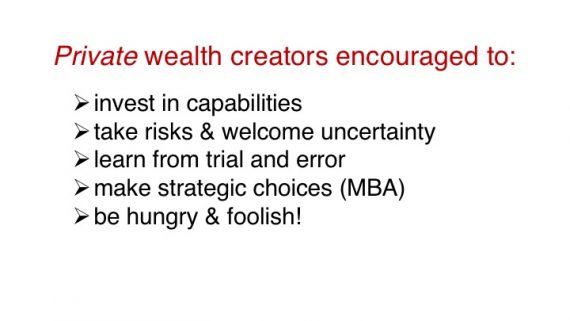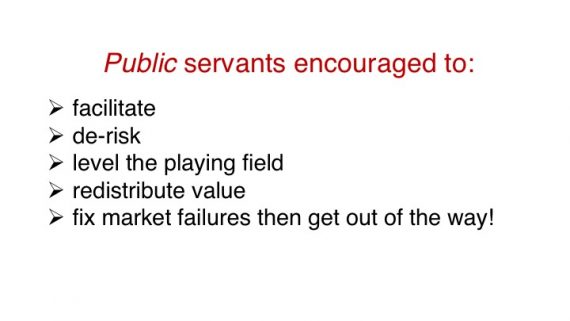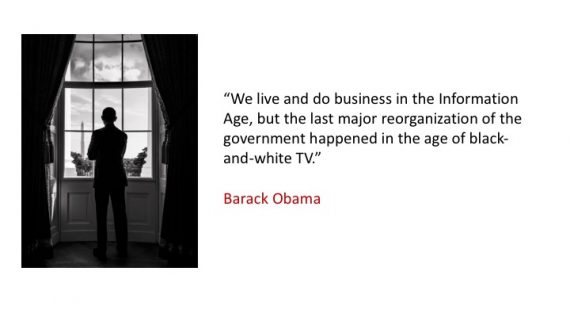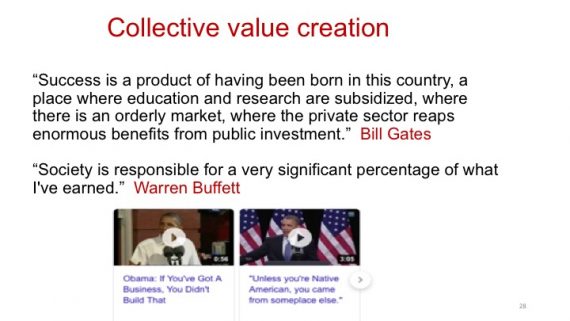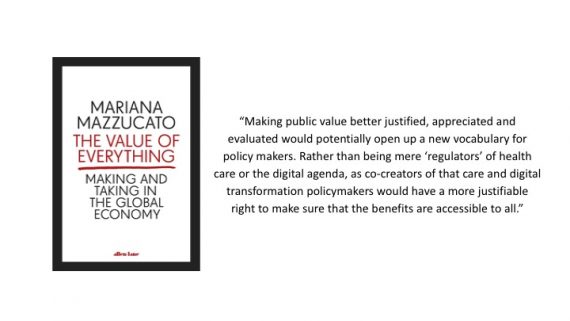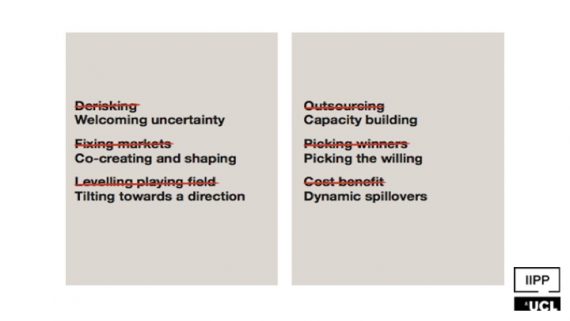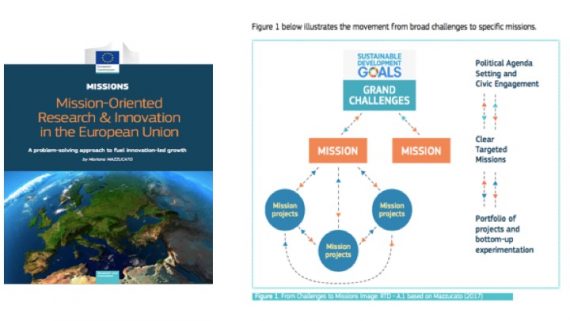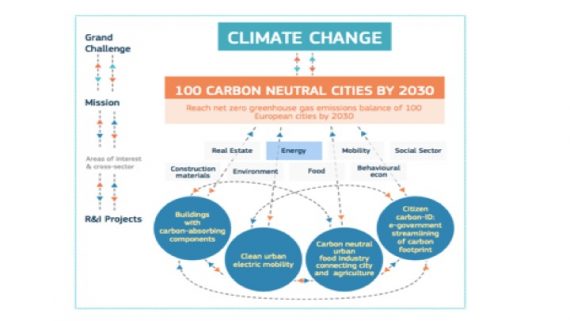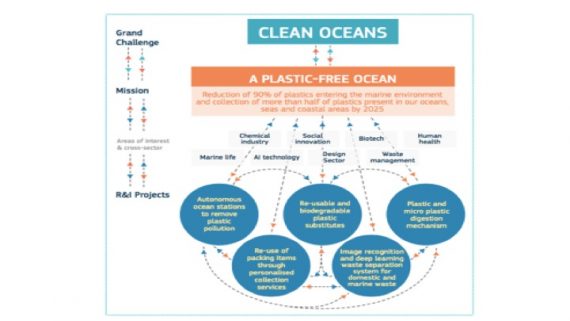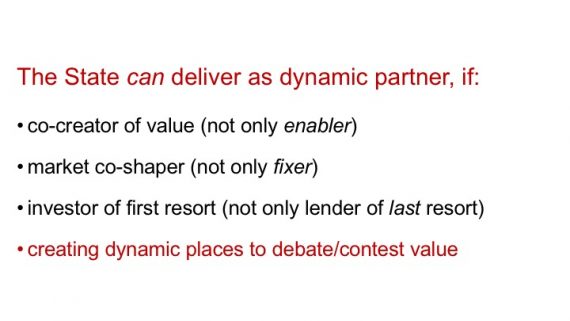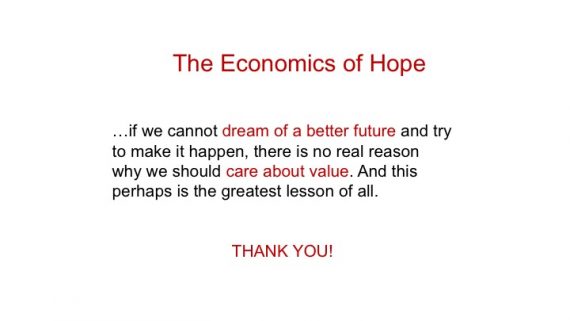John Menadue Oration 2018 by Professor Mariana Mazzucato
Can the State Deliver?
The John Menadue Oration is CPD’s annual flagship event, named after our founding Chairperson John Menadue AO. Our inaugural Oration was held in 2017 to celebrate CPD’s 10th anniversary. It was delivered by former Indonesian Foreign Minister, Marty Natalegawa, who asked whether democracy can deliver. He said it could and it must. At CPD’s second Oration in 2018, Professor Mariana Mazzucato asked: can the state deliver?
Full Oration event:
Oration only:
Q&A only:
Full oration slide presentation:
“It’s interesting the pressure we put on states, when we ask, Can the State deliver?, when actually there are so many problems across so many different actors in society. Just think of the financial crisis and what that exposed of the difficulties across both finance and business … [we have] to make sure that we’re putting equal pressure on the different partners in society.”
“The state’s problem I believe is that the way we frame the role of the public sector today and also how we then train civil servants, is in terms of fixing problems when they happen… Policy makers around the world are basically not allowed to do anything until they can identify the screw up that happened in the market… It’s quite striking how this language of fixing and mending and enabling and facilitating and de-risking is so powerful.”
“But these words have become so powerful, common parlance, that they become part of the storytelling, part of the discourse. It then makes it really hard to allow the state to deliver in ambitious ways and also be a dynamic partner alongside other actors.”
“This is why I wrote The Value of Everything, because in my travels I found around the world policy-makers who were quite thirsty for a new narrative and framework about market co-creating, market co-shaping.”
We don’t have a rigorous way to talk about value as being collectively created… that’s why it’s very important to unpick this notion of value and to suggest that it will be impossible to address the big challenges we have ahead unless we [do so]. And literally we should start changing the way we talk.”
“Lloyd Blankfein, CEO of Goldman Sachs, was able to say with a straight face one year after the financial crisis, that Goldman Sachs employees are the most productive in the world! This is because of the focus on preferences and subjectivity, basically a theory of price which determines the theory of value, versus what previous economists did, which is have a theory of value which determined the theory of price. But even if it wanted to, government can’t do that because the way we actually account for government activities in GDP is only through the cost of the activity, so we don’t actually have a measure of the value of the education system or the health system. In many countries those things are free, so we only know how to calculate the costs, so for instance the salaries of the teachers. If you don’t know how to value the output of what government does then you literally can’t account for its productivity.”
“What’s the answer to the question, Can the state deliver? Yes, it can. But only if we really change the way we think, the way we talk about the state, the way we train our public servants, and also the way we get proper deals. It’s not just about de-risking, it’s about sharing risks and rewards. Co-creating value not just enabling it, market co-shaping not just fixing, investor of first resort not just lender of last resort, but also creating interesting spaces where these debates can be had, where we can contest value: where we can talk about why it is so easy for Goldman Sachs to talk about itself as a value creator, but so difficult for a teacher or a nurse to feel the confidence and happiness of the amazing value they create. We have no clue how to capture that, and hence have a difficulty in nurturing it.”
Coverage and related links
UCL Institute for Innovation & Public Purpose (IIPP)
Australia is uniquely up to the task of solving ‘wicked’ problems around inequality, Mariana Mazzucato, The Guardian, 14 December 2018
Are we overlooking the role of the public sector in the economy, Interview with Laura Tingle for ABC 730 program, 10 December 2018
On a mission: saving democracy, Travers McLeod, Sam Hurley and Allison Orr, Inside Story, 6 December 2018
When banks disappoint, let the state step up: contrarian economist Mariana Mazzucato, Hans van Leeuwen, Australian Financial Review, 7 December 2018
Mariana Mazzucato discusses how to improve our economy, Geraldine Doogue, ABC’s Saturday Extra, 8 December 2018
Innovate before it is too late, warns economist Mariana Mazzucato, Company Director Magazine, 1 December 2018
Time for the state to be entrepreneurial?, Paul Barclay, ABC’s Big Ideas, 21 February 2019
Innovative success from sharing risks and rewards amongst public and private research, Robyn Williams, ABC Science Show, 2 February 2019
Private-public sector co-operation can tackle major challenges, Jim Chalmers, Canberra Times, 8 January 2019
Mazzucato on public research, InnovationAus, 27 November 2018
Mission-Oriented Research and Innovation in the European Union, Mariana Mazzucato, February 2018
The Value of Everything, Mariana Mazzucato, 2018
The Entrepreneurial State, Mariana Mazzucato, 2013
Background on Mariana Mazzucato
Mariana is the author of a trio of best-selling books that call for a more dynamic public sector and a better understanding of what truly creates value in our economies – and what destroys it. Her work makes a powerful case that governments have stepped back from their critical role driving technological innovation and targeting a direction, as well as a rate, for economic growth. It also highlights the dangers of conflating value-creating activities with value-extraction – especially in a financial sector that focuses on maximising near-term returns for shareholders at the expense of long-term social value.
Mariana is the founder and director of the University College of London’s Institute for Innovation and Public Purpose, which aims to train and inspire the next generation of global leaders to tackle mission-oriented societal goals around issues like climate change and inequality. She’s also an expert advisor to policymakers, governments and institutions around the world. You can read her full bio here.

